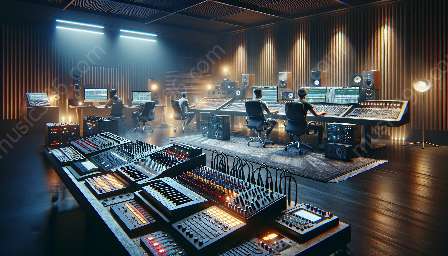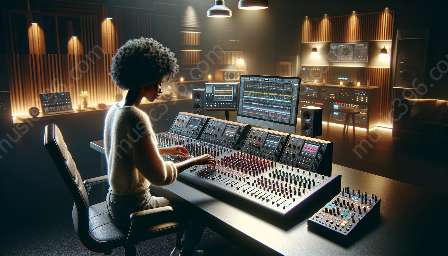Audio mixing is a crucial aspect of music production, and incorporating reference tracks can significantly enhance the process. By comparing your mix to professionally mixed and mastered tracks, you can achieve a better understanding of sonic elements, improve your decision-making skills, and enhance the overall quality of your mix. This article explores the various benefits of using reference tracks during the mixing process and their impact on music technology.
1. Understanding Sonic Elements
One of the key benefits of using reference tracks is gaining a deeper understanding of sonic elements such as frequency balance, stereo imaging, dynamics, and spatial effects. By listening to well-mixed reference tracks, you can train your ears to identify these elements and use them as benchmarks for your own mix. This practice can help you develop a critical ear and a heightened sense of audio quality.
2. Improving Decision-Making Skills
Reference tracks serve as a valuable reference point for making decisions during the mixing process. When you encounter challenges in balancing different elements of your mix, referring to professionally mixed tracks can provide insights into how to address issues related to levels, panning, and tonal balance. This practical guidance can help you make informed decisions and overcome obstacles encountered during mixing.
3. Enhancing Mix Quality
By using reference tracks, you can aim for a mix that achieves a competitive level of quality in the music industry. Analyzing the sonic characteristics of reference tracks can inspire you to make improvements in your own mix, leading to a more polished and professional sound. This can be particularly beneficial for aspiring mix engineers and producers looking to elevate the quality of their work.
4. Developing Technical Proficiency
Referencing tracks can also contribute to the development of technical proficiency in audio mixing and music technology. Through critical listening and analysis of reference tracks, you can refine your understanding of signal processing, equalization, compression, and other technical aspects of audio engineering. This continuous learning process can result in honing your skills and expanding your knowledge base.
5. Keeping Up with Industry Standards
In the ever-evolving landscape of music production and technology, staying abreast of industry standards is crucial. Using reference tracks allows you to benchmark your mix against commercially successful and well-received tracks, enabling you to align your sound with contemporary industry standards. This awareness is vital for maintaining relevance in the competitive music market.
6. Adapting to Various Playback Systems
Reference tracks can help you create mixes that translate effectively across different playback systems. By referencing tracks on various speakers, headphones, and environments, you can evaluate how your mix translates and make necessary adjustments to ensure that it sounds good across different platforms. This adaptability is essential for producing music that resonates with a wide range of listeners.
7. Fostering Creativity and Innovation
While the use of reference tracks provides technical and practical benefits, it also has the potential to inspire creativity and innovation. By studying the artistic and sonic choices made in reference tracks, you can gain new perspectives that spark creativity and experimentation in your own mixing process. This approach can lead to unique and inventive sonic outcomes.
Conclusion
In conclusion, utilizing reference tracks during the audio mixing process offers numerous benefits that significantly impact music technology. From enhancing technical proficiency to fostering creativity and innovation, the practice of referencing tracks can elevate the quality of your mixes and contribute to your growth as a music professional. By integrating reference tracks into your workflow, you can enhance your learning experience, improve the quality of your mixes, and stay attuned to industry standards, ultimately leading to a more accomplished and rewarding mixing journey.

























